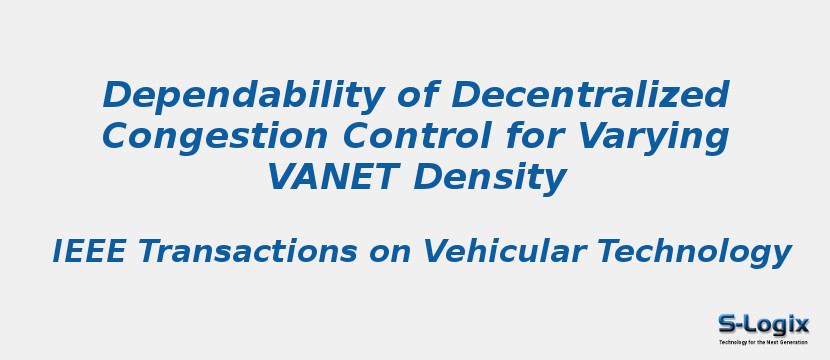Research Area: Vehicular Ad Hoc Networks
IEEE 802.11p is an amendment to the IEEE 802.11 standard for Wireless Access in Vehicular Environments (WAVE). Lower layer wireless transmission formats and protocols are defined for both vehicle-to-infrastructure and vehicle-to-vehicle communication links to support cooperative intelligent transport systems. The medium access control (MAC) layer uses carrier sensing as a means for detecting the busy state of the radio channel before transmitting. In heavily loaded vehicular ad hoc networks (VANETs), the channel access delay, when attempting to access the channel, unpredictably increases when it is sensed as busy. The European Telecommunications Standards Institute (ETSI) defines safety-related messages. These messages require a dependable behavior of the communication link. In this context, dependable behavior translates to the reliable delivery of data packets within a specified deadline regardless of changes in traffic density. Unfortunately, the WAVE amendment does not fulfill the requirements for such dependable behavior. This contribution reports on performance evaluations by simulation studies of the WAVE MAC and the decentralized congestion control (DCC) mechanism specified by the ETSI in addition to the existing enhanced distributed channel access. The simulation scenario under study is a two-VANET-merging highway situation. The MAC protocol has to adapt to variable traffic densities in this scenario. The performance is evaluated in terms of coverage range and MAC-to-MAC delay reliability and DCC state stability. Furthermore, a novel performance indicator is defined, evaluated, and discussed, which the authors of this work have named data novelty. Finally, a multistate-active DCC mechanism is proposed, which achieves a dependable behavior.
Keywords:
Author(s) Name: Arrate Alonso Gómez and Christoph F. Mecklenbräuker
Journal name: IEEE Transactions on Vehicular Technology
Conferrence name:
Publisher name: IEEE
DOI: 10.1109/TVT.2016.2519598
Volume Information: Volume: 65, Issue: 11, Nov. 2016
Paper Link: https://ieeexplore.ieee.org/document/7386684
